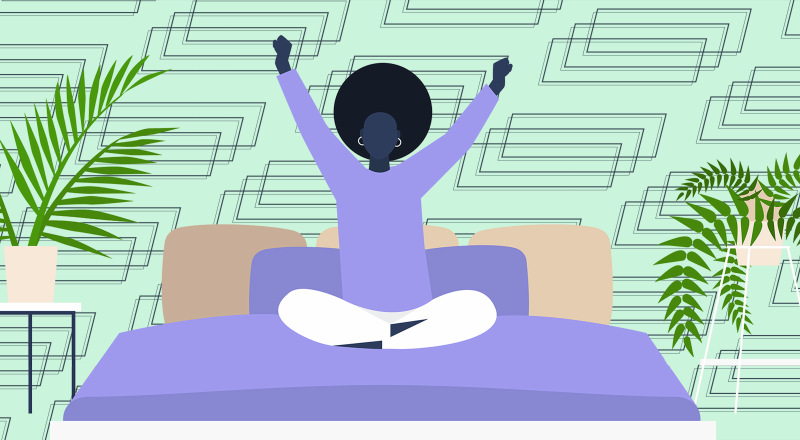One Good Thing: change up your morning routine to bring more joy to your day
Welcome back to One Good Thing, Stylist’s Sunday series that asks experts in mental health for the one good thing we can all do to boost our wellbeing.
This time around, we’re chatting with Dr Elissa Epel, a professor in the department of psychiatry at the University of California, San Francisco, to find out her One Good Thing.
Hey, Dr Epel! If you could recommend one good thing everyone can do to improve their mental health, what would it be?
Wake up and orient to the joy in your day. You can remind yourself there is joy in your day, and it is of great benefit to simply be open to seeing and feeling it. Then do one thing that increases your positive mood and outlook on the day.
Great stuff. How do we do that? And why should we?
Morning is a sacred time. If we can take a few minutes, we can change our mood, our biology and thus the trajectory of our day. If you try this, you will feel the goodness in it. You won’t remember to do it every day but that’s OK. The more days the better; seize the day!
When you wake up, try one of these. Or make it a triple.
- Take some slow breaths, and let yourself feel at ease in your body. You have a fresh day.
- Think of something you are looking forward to or something you appreciate right now.
- Move your body – this is a great time for a few minutes of gentle yoga. Use music if that lifts your mood.
It’s simple but powerful.
What benefits will we see from rebooting our mornings?
Boosting positive mood in the morning or evening, the sensitive bookends in our day, creates a positive mind-body state. In the morning, we orient our attention to notice the good in our day and avoid starting off in a stressed, vigilant, hyperactive mode.
We’ve found that when people wake up feeling positive about something in their day or end their day with some positive emotions, they have lower levels of cortisol shooting up, and higher levels of mitochondrial activity, along with higher levels of telomerase, the ‘anti-ageing enzyme’. Mitochondria are known as the ‘powerhouse’ of the cell. They are our cells’ batteries. They create energy called adenosine triphosphate (ATP), which fuels all of our essential cellular activity. Stress is expensive; it uses a lot of ATP, and it can easily deplete our energy.
Mitochondria are big, robust, and efficient when we’re young; over time, as they age, they begin to create more oxidative stress. The older and weaker they get, the more oxidative stress leaks out, and the amount of energy they produce wanes. This is an important mind-body connection point: the average caregiving parent has lower-quality mitochondria – their mitochondria biologically look like they may have less energy, less vitality. Positive affect seems to put a kind of protective armour around them against stress, possibly even all the way down to the cellular level.
You may also like
One Good Thing: commit to a daily meditation practice to boost your mental health
You might grab for your phone. You might think of your to-do list and give your heart rate a boost, your adrenals a jolt. That’s OK. Even if your mind travels to the stress in your day, you start to doomscroll or check your email, it’s not too late. You can still sit back and take a few minutes to recalibrate for a day of joy and ease.
How do you personally do your one good thing?
Just like this: sit up in bed before I get distracted by doing things. Take a few slow breaths; mindful breathing at this time can bring you right to a ‘green mind’ state of true relaxation. I think ahead to something I am looking forward to that day. If nothing comes to mind, I think of something I am grateful for. Then, feel love and comfort: pet a dog, hug a family member if they are not grumpy and in a rush. Hug myself on a day that already feels hard.
How has doing your one good thing changed your life?
I feel the difference, and it lasts. You will too. Try it for a week and see if you have shifted out of the stress habit of waking up with ‘red mind’ – ready to go go go. You deserve a few minutes of just being, feeling ease, and feeling the purpose in your day, your life.
The Seven-Day Stress Prescription by Dr Elissa Epel is available now (Penguin Life, £9.99)
Frame Of Mind is Stylist’s home for all things mental health and the mind. From expert advice on the small changes you can make to improve your wellbeing to first-person essays and features on topics ranging from autism to antidepressants, we’ll be exploring mental health in all its forms. You can check out the series home page to get started.
Main image: Getty; Stylist
Source: Read Full Article
